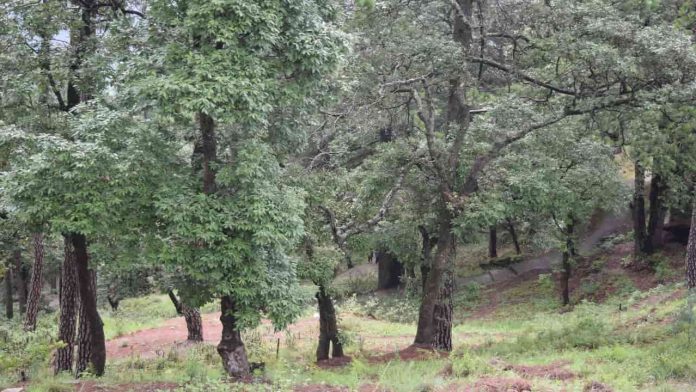The Supreme Court has reprimanded the Maharashtra authorities for illegally acquiring the land of a private person and then compensating him with a notified forest land.
The Bench of Justice BR Gavai and Justice KV Viswanathan took note of the fact that the applicant succeeded in all litigations against the state up to the Supreme Court and the alternate land allotted turned out to be a notified forest land.
The Apex Court noted that the predecessors-in-title of the petition succeeded up to this court for getting possession of the land, which was illegally occupied by the state government. The records showed that the land allotted to the petitioner was a notified forest land. The applicants, who succeeded up to this court, cannot be denied the benefits of the decree passed in their favour, it added.
The Bench said that firstly, the action of the state government in impinging upon a private citizen’s land was itself illegal. Secondly, the state ought to have taken due precaution before allotting a piece of land notified as forest land. The state ought to have allotted a land with a clear title.
It permitted the applicant to place on record the rates for the two pieces of land – the original land which was occupied by the state and the alternate land which was allotted by the state but found to be forest land.
Noting that even after the matter remained pending for several years, the state failed to come up with a concrete proposal, the Bench directed the Maharashtra government to come up with a clear stand as to whether another piece of equivalent land would be offered to the applicant, or as to whether adequate compensation would be paid to the applicant, or as to whether the state proposed to move the Central government for denotification of the said land as forest land.
The Apex Court warned the Maharashtra government that in case it failed to take a clear stand, the Court would be compelled to summon the State Chief Secretary.
The Bench passed the order on an interlocutory application filed by a litigant claiming that his predecessors-in-interest purchased a 24-acre land in Pune in the 1950s. The applicant claimed that when the state government occupied this land, he instituted a suit and won all the way up to the Supreme Court.
Subsequently, the decree was sought to be executed, but the state government then said that the land had been given to a Defense Institute. The Defense Institute, on its part, claimed that it was not a party to the dispute and therefore, could not be evicted.
The applicant then moved the Bombay High Court, praying that he be allotted alternate land. The High Court issued strictures against the state for not allotting alternate land for 10 years. In 2004, an alternate land was finally allotted, but eventually, the Central Empowered Committee informed the applicant that the said land was part of a notified forest area.
Appearing for the applicant, Senior Advocate Dhruv Mehta contended that the applicant fought three rounds of litigation over 50 years, yet when he was ultimately allotted alternate land, the same turned out to be forest land.
Amicus Curiae K Parmeswar pointed out that the state filed an affidavit in 2015 saying that it would pay Rs 14 lakh to the applicant in lieu of the 24-acre land. He stated that the offer was extremely unfair, as it valued the land at the rate of 1963.
The Apex Court observed that even if the right to property was not a fundamental right, it was still a constitutional right. The Court asked the State, how could it take somebody’s property.
The Bench adjourned the matter to await the response of the state government on how it would compensate the applicant.


